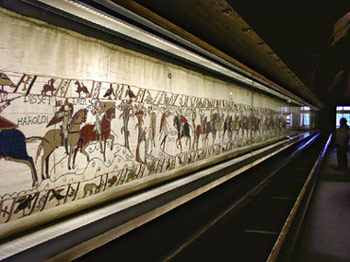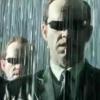Is it even possible for something to exist forever?
Could a Lifeform store all its memories forever, wouldnt this mass of data grow into infinity and finally be inacessible when it has reached a certain size?

Posted 11 February 2014 - 05:56 AM
Posted 11 February 2014 - 01:18 PM
Is it even possible for something to exist forever?
Could a Lifeform store all its memories forever,
here you've tripped yourself!wouldn't this mass of data grow into infinity and finally be inaccessible when it has reached a certain size?



Edited by Innocent, 11 February 2014 - 01:50 PM.
Posted 12 February 2014 - 04:29 AM
Posted 12 February 2014 - 03:51 PM
I dont know if calculating "past" information could be done this way (do you have a link where this idea is explained in deepth?),
and with inacessible i menat that one day you will have that much information, memories and so on that you may need to cross light years to get to the place they are stored (even if you manage to use atoms, or samller particles, as your smalles information unit), stuff piles up during eternity.


Iam not opposed to the Idea of a extremly prolonged life (otherwise i wouldnt hang around in the forum for 12 years) I just want to know which ways to make it feasible will work and which will not.
Edited by Innocent, 12 February 2014 - 04:04 PM.
Posted 13 February 2014 - 12:48 AM
If our species doesn't survive we must still be resurrected by the laws of probability and the eternity of the cosmos: this is also an argument from Many Worlds Theory, ie that which can happen tends always to happen.
Posted 13 February 2014 - 09:31 PM
If our species doesn't survive we must still be resurrected by the laws of probability and the eternity of the cosmos: this is also an argument from Many Worlds Theory, ie that which can happen tends always to happen.
Sounds very optimistic, which Iam not that much.
First of all, this assumptions about Quantum-Archeology have to be true, and 2nd: Will it really be us, will they really be able to resurect us and not a mere copy which has no continuity with ourself?


Edited by Innocent, 13 February 2014 - 09:42 PM.
Posted 03 March 2014 - 04:14 AM
Edited by Florin Clapa, 03 March 2014 - 04:18 AM.
Science & Health →
AgingResearch →
Aging Theories →
Is it really possible that someone might live above 150 years or more in our lifetime?Started by Bugaboo , 27 Jul 2018 |
|

|
0 members, 1 guests, 0 anonymous users